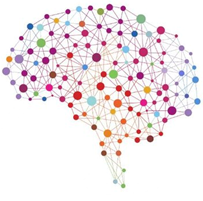Talk title: Predictive processing: theoretical tools for higher cognition
Predictive processing (PP) is increasingly influential as a unifying model of perception, action, and cognition (Clark, 2013). Whilst highly successful in perceptual and motor domain, it is not clear how higher cognition, thought, and concept formation should be understood within this framework. This is not surprising since PP finds its origins in predictive coding, which was originally designed as a data compression method for investigating information processing on the retina (Srinivasan et al., 1982). We are then faced with a challenge of determining whether and how the PP learning mechanisms, adequate for explaining perceptual and motor processes, can also be utilised to support higher cognition (Williams, 2020).
In this talk we propose two novel cognitive mechanisms aimed at addressing this theoretical gap, with a specific focus on the topics of learning of novel concepts and the representation of concepts. Firstly, we examine the existent mechanism for learning of novel concepts, structure learning (Smith et al., 2020), and provide a critical examination followed by a new proposal for how structure learning should be. Secondly, we argue that the prevailing perspective on concept representation fails to encompass essential features such as predication, compositionality, productivity, and systematicity, which are inherent in structured concepts. As an alternative, we put forward a proposal, augmented with probabilistic language of thought (Goodman et al., 2014), positing that each compositionally structured concept corresponds to a mental policy. The directions for developmental research will be presented at the end.


Leave a Reply